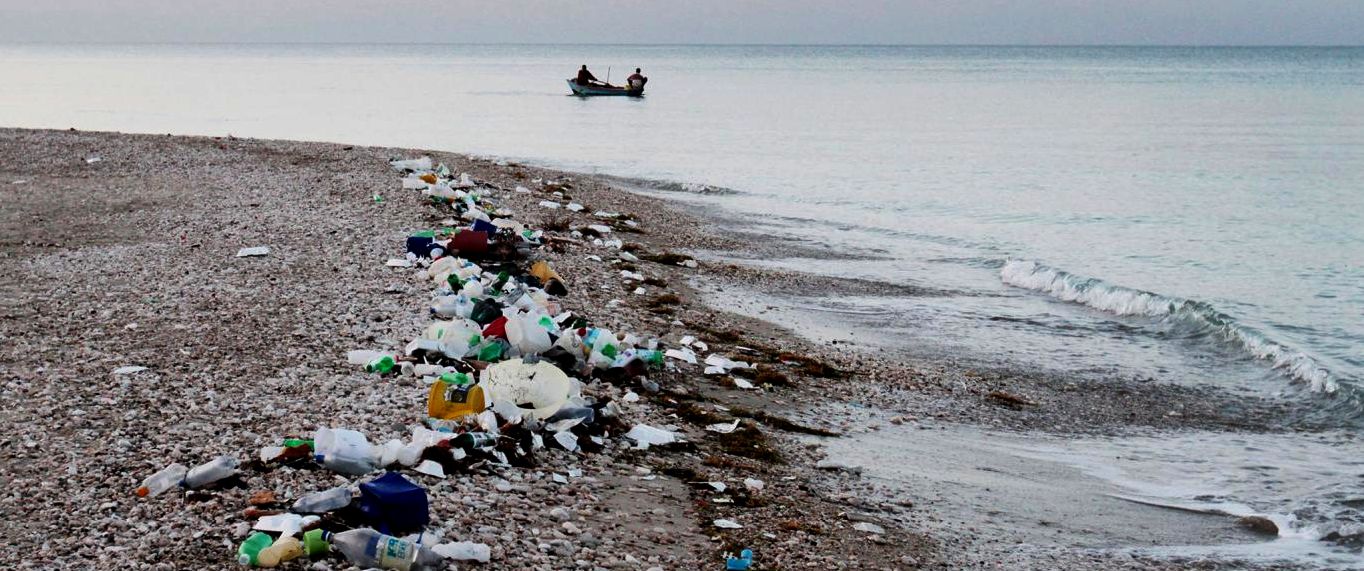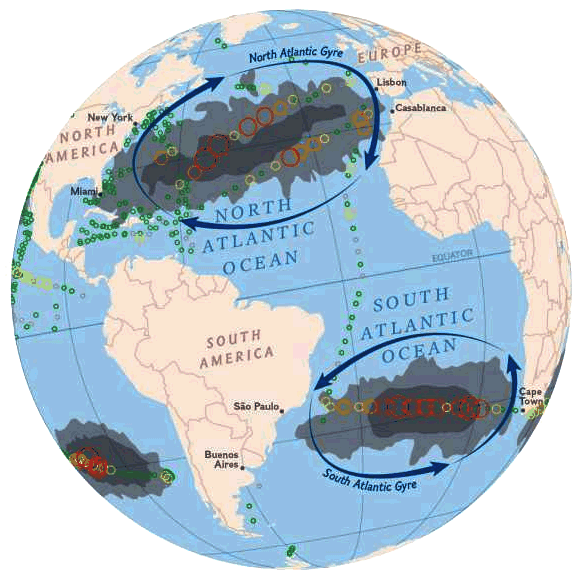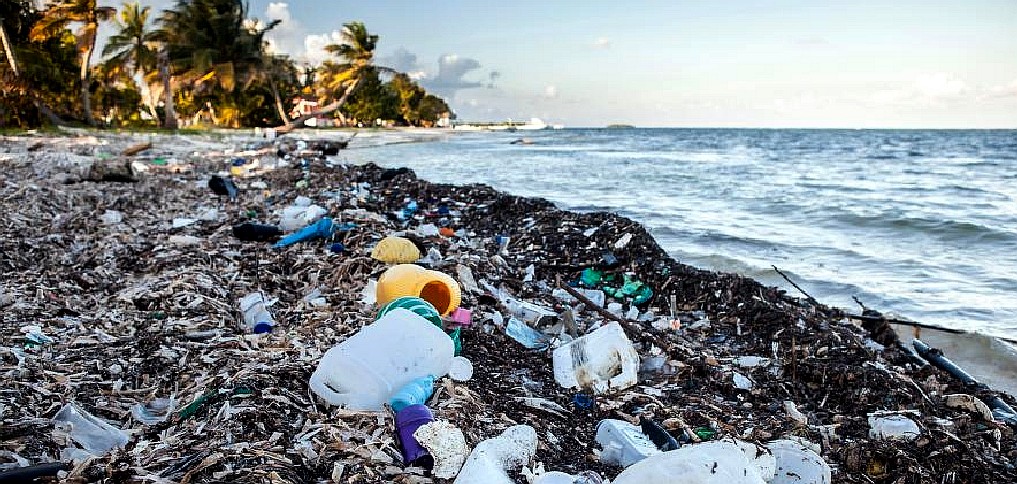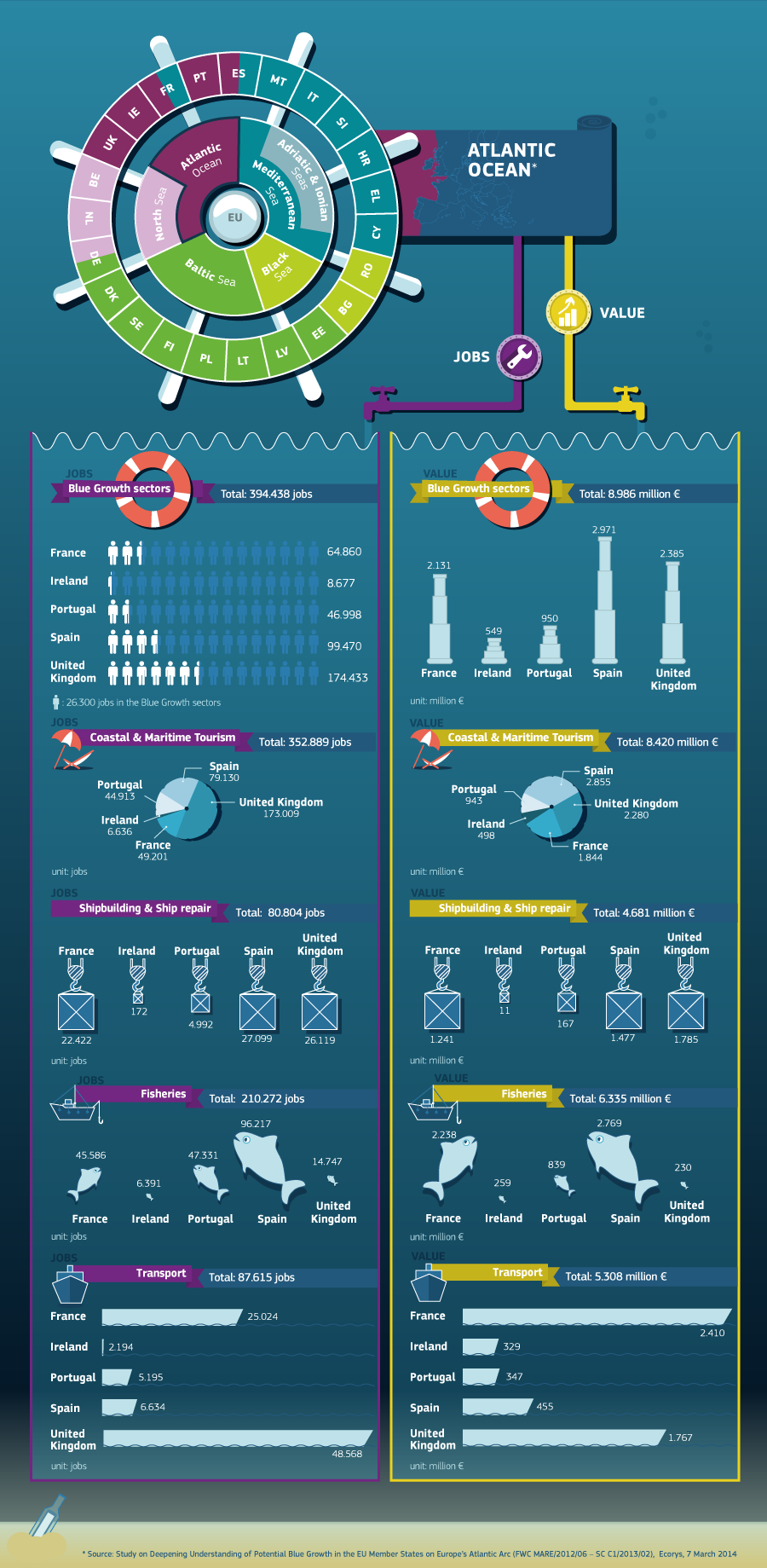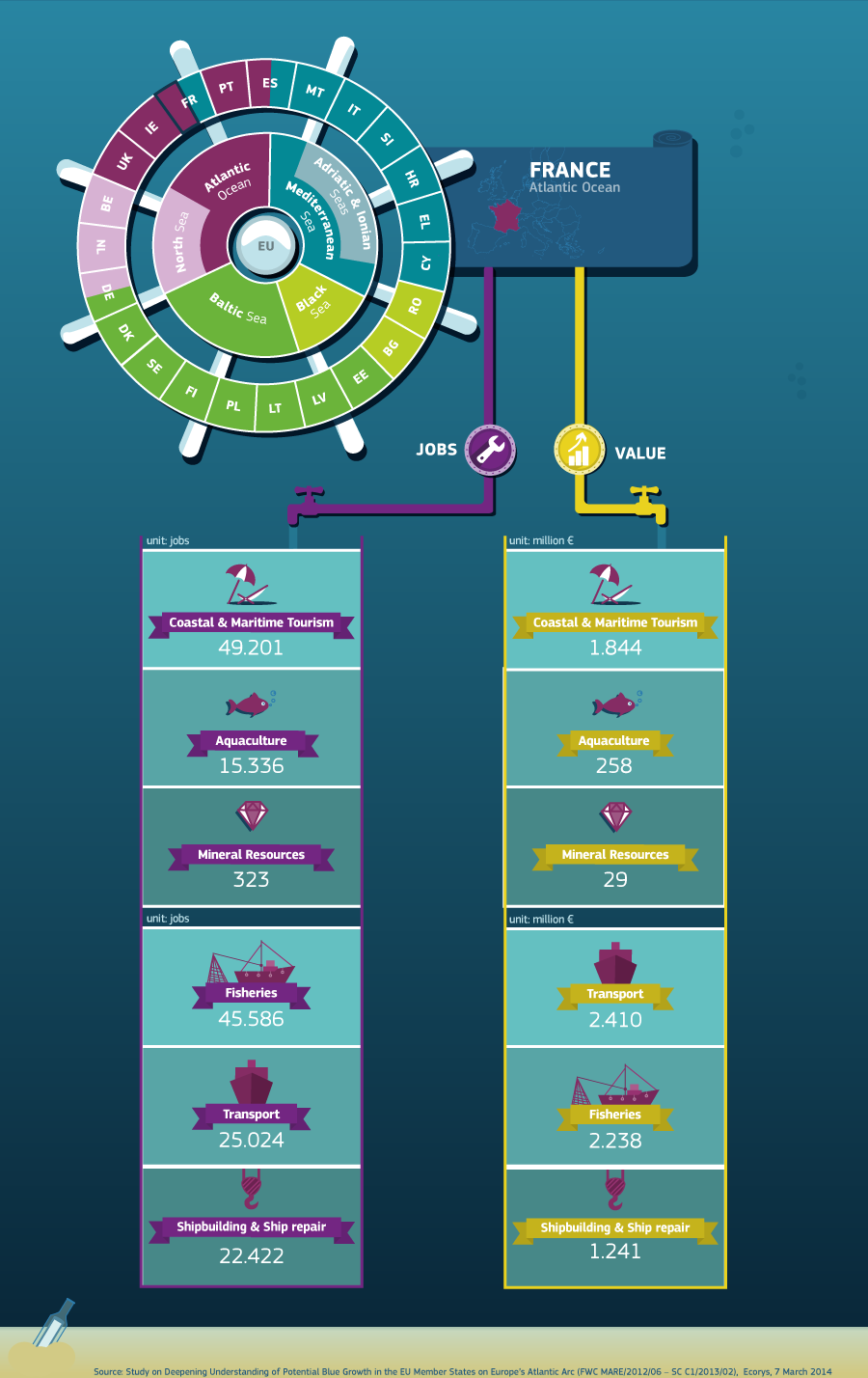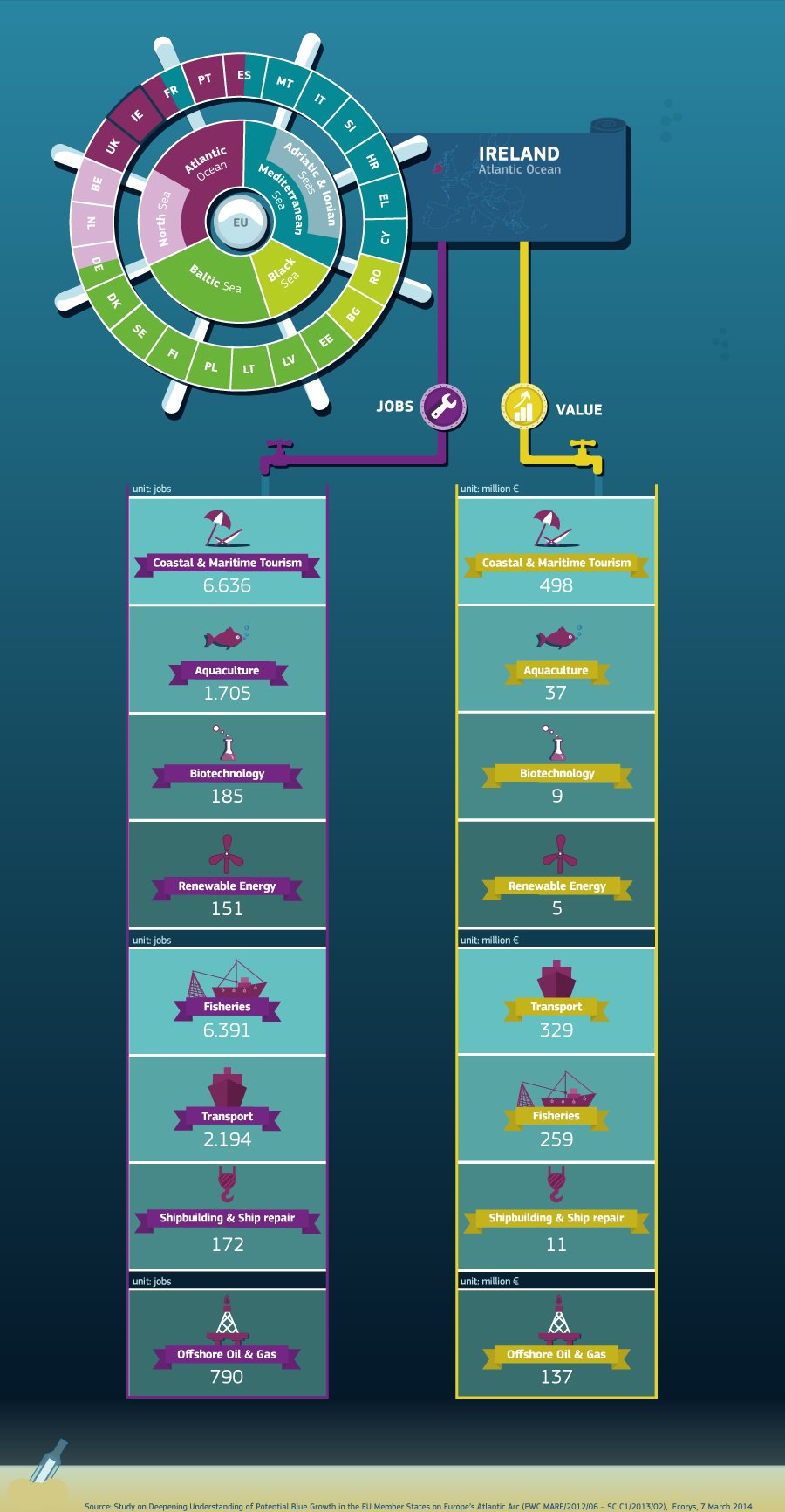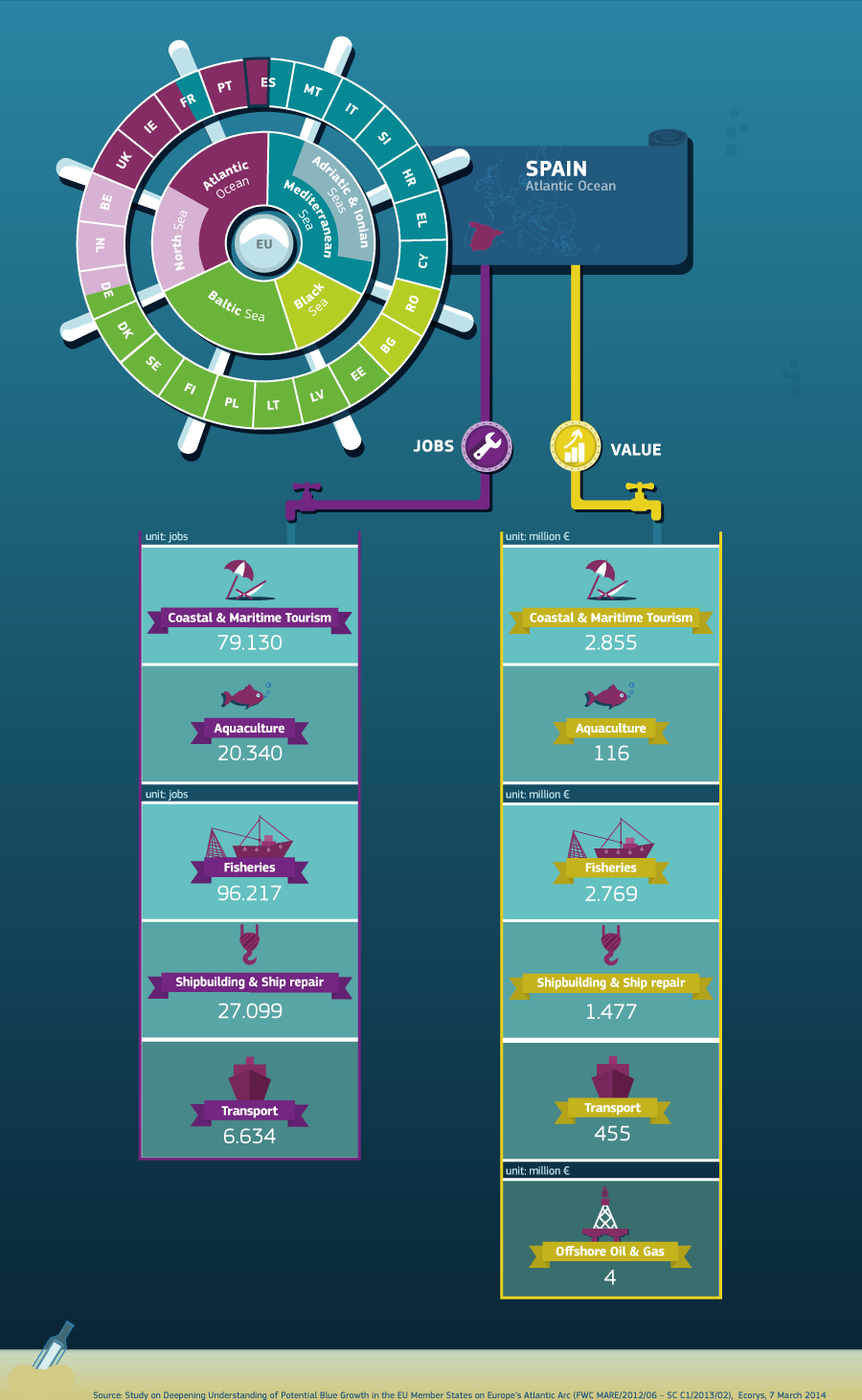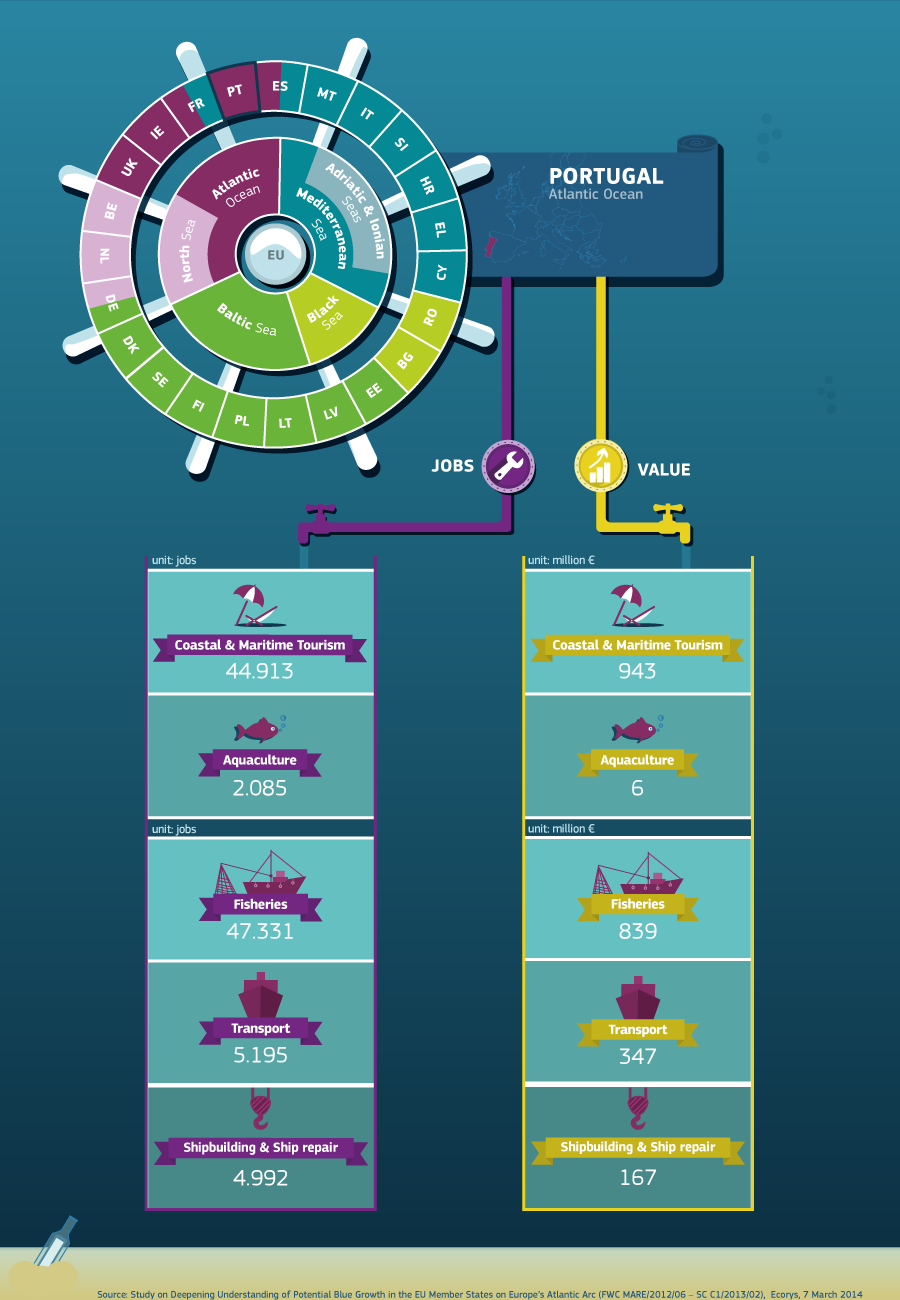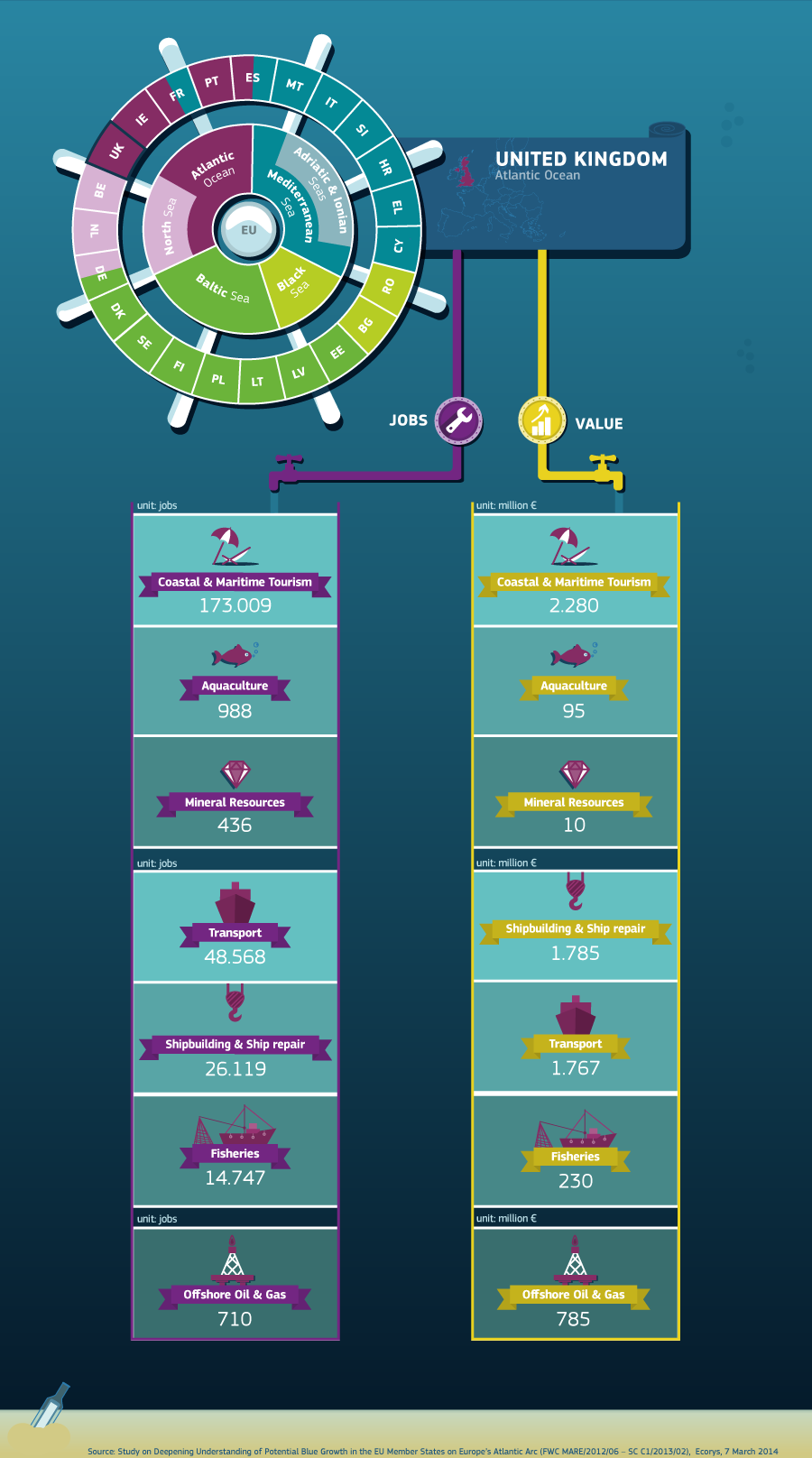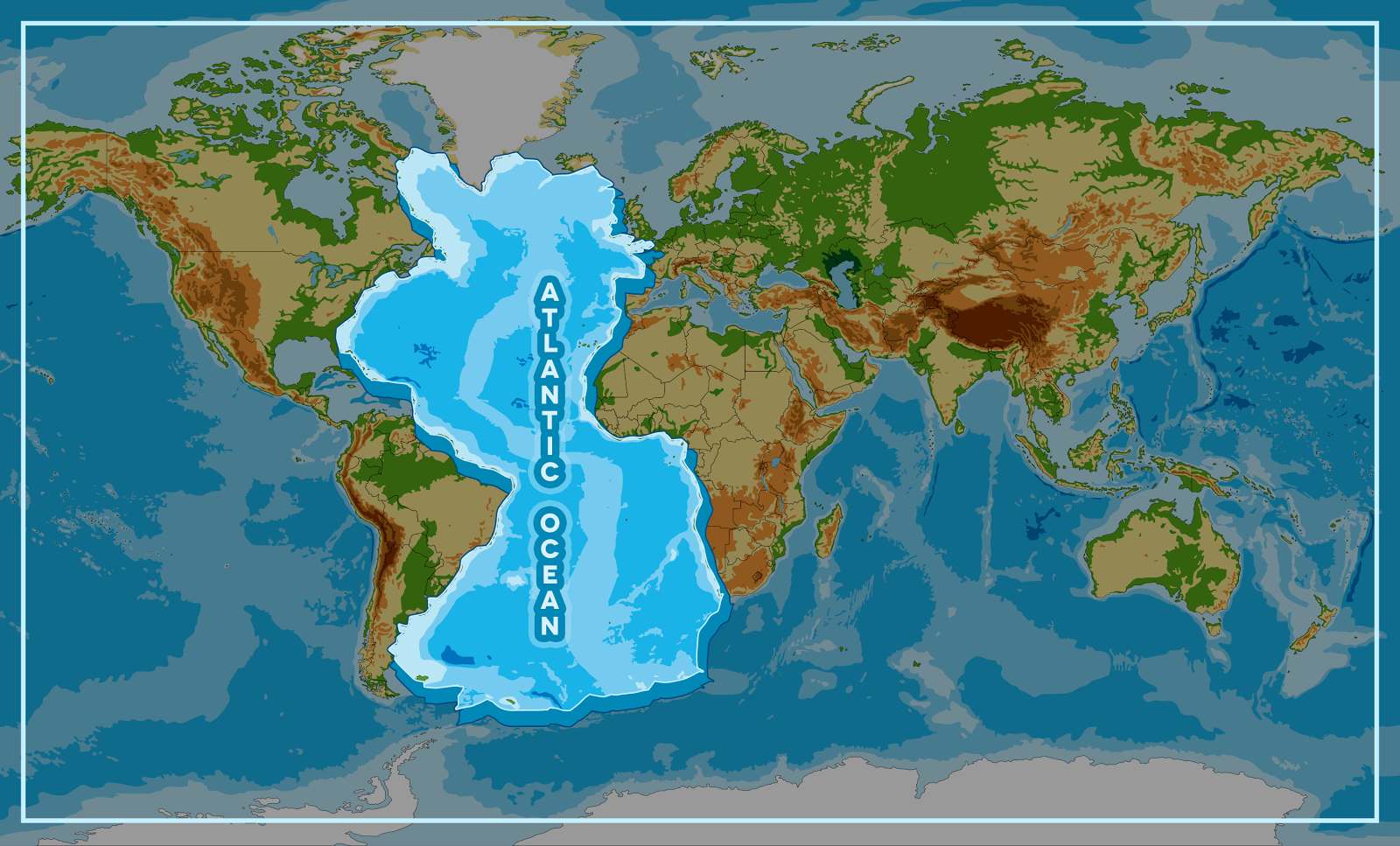|
ATLANTIC OCEAN - AGENDA 2030
ABOUT - CONTACTS - FOUNDATION - HOME - A-Z INDEX
THE
INDEPENDENT FEB 2015 - The world’s oceans are being filled with enough plastic waste to thickly line every coastline in the world, according to the first detailed global assessment of the problem.
The United Nation's put blue growth firmly on the Agenda for 2030 with a five year plan for 2018-2023, as part of their Sustainability Development Goals (SDGs).
GLOBAL WASTE PROBLEM - The above views of planet earth as global views show us the Atlantic, Ocean gyres and estimates of plastic waste in (thousands) numbers of pieces of plastic waste per square kilometer of sea. The Pacific Ocean gyres are held to be the worst at the moment.
EUROPE
ATLANTIC
SPREAD
Healthier oceans will produce healthier fish and healthier fish will populate to produce more wild fish to replenish the oceans, provided that we fish sustainably and do not take more than any fishery can support.
An ocean that is polluted is likely to stunt the growth of fish that spawn in it. This did not seem to matter when the oceans were stocked up in balance with nature, but with man taking larger catches and dumping waste into the sea, things started changing. Fish stocks went down and when overfished did and do not return.
AQUACULTURE
To many people looking for another quick fix aquaculture seems to offer hope for the lost fish from wild catch fisheries. Farmed fish has increased to the point where it is poised to overtake caught fish - and it sounds great.
But, and this is a big but, the food to feed the farmed fish comes from the sea and from land. That means we need to grow food on land and catch fish to produce feed for high end fish such as salmon.
The economics of that scenario do not add up. At the moment we can feed farmed fish from grown crops and fish that humans could eat but will not at this stage, but in the future with the present population increases that situation is unsustainable. That is because the feed and wild fish that we feed to produce farmed fish is significantly reduced in terms of actual produce in the conversion process. We lose food value many times over.
That is not to say that we do not applaud the advances in aquaculture that are taking place and the fish that these modern farmers are producing and bringing to our tables. it is just that as with over fishing, such practices appear unlikely to be sustainable - and this brings us back to the health of our oceans and seas. Because, land alone cannot feed our world population as it competes with housing and industry and the sea is rapidly being filled up with potentially carcinogenic toxins and plastic solids that studies suggest will soon outweigh the fish.
CHANGE OUR HABITS
In addition to being smarter in the way we produce and hunt for food, we have to think of ways that will support our farming and fish production. One of the most effective ways of doing this is to stop plastic getting into the sea. We can reduce plastic in packaging and we can recycle single use plastic effectively.
Another way of helping to alleviate the problem is to make people aware of the problem. Campaigns such as Miss Ocean and Mister Ocean are sure to have an impact on the way shoppers shop and that in turn will determine how manufacturers package their products. Ocean literacy is therefore vital if we are to stage any kind of ocean regeneration programme. And for that we need funding for research urgently.
OCEAN AWARENESS CAMPAIGN - As part of the Cleaner Ocean Foundation's ocean literacy campaign, we are developing a game that can be played on mobile devices like the iphone or android smart phones. In this game children learn a little about geography as they select one of five ocean areas to rid of marine litter. The screen above shows that the player has selected the Atlantic Ocean to tackle. Copyright © January 29 2018 all rights reserved COF Ltd. The name SeaVax is a registered ® trademark.
LINKS & REFERENCE
http://news.nationalgeographic.com/news/2015/01/150109-oceans-plastic-sea-trash-science-marine-debris/ http://www.independent.co.uk/environment/plastic-waste-in-ocean-to-increase-tenfold-by-2020-10042613.html https://sustainabledevelopment.un.org/sdg14 http://wef.ch/plasticseconomy
ABS - BIOMAGNIFICATION - BP DEEPWATER - CANCER - CARRIER BAGS - CLOTHING - COTTON BUDS - DDT - FISHING NETS FUKUSHIMA - MARINE LITTER - MICROBEADS - MICRO PLASTICS - NYLON - OCEAN GYRES - OCEAN WASTE - PACKAGING - PCBS PET - PLASTIC - PLASTICS - POLYCARBONATE - POLYSTYRENE - POLYPROPYLENE - POLYTHENE - POPS - PVC - SHOES SINGLE USE - STRAWS - WATER
AEGEAN - ACIDIFICATION - ADRIATIC - AMBRACIAN GULF - ARCTIC - ATLANTIC - BALTIC - BAY BENGAL - BAY BISCAY - BERING - BLACK - CARIBBEAN - CASPIAN - CORAL - EAST CHINA SEA ENGLISH CH - GOC - GUANABARA - GULF GUINEA - GULF MEXICO - INDIAN - IRC - IONIAN - IRISH - MEDITERRANEAN - NORTH SEA - PACIFIC - PERSIAN GULF - SEA JAPAN STH CHINA - PLASTIC - PLANKTON - PLASTIC OCEANS - RED - SARGASSO - SEA LEVEL RISE - SOUTHERN - TYRRHENIAN - UNCLOS - UNEP WOC - WWF
This website is provided on a free basis as a public information service. copyright © Cleaner Oceans Foundation Ltd (COFL) (Company No: 4674774) January 2025. Solar Studios, BN271RF, United Kingdom. COFL is a charity without share capital. The names Amphimax™ and SeaVax™ are trademarks.
|
